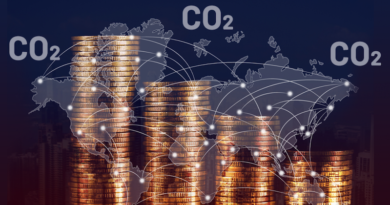
Good Games and Climate Change: Building a better world through video game
In 2020, the video games industry reached €150 billion in revenue making it larger than the film and music industry combined.1 Thanks to the widespread propagation of high-speed cellular data and smartphones, the global player base” has reached 2.7 billion individuals. The video games industry has entered its golden age whichever way you look at it— and that means we should look at it more closely.
Indeed, close attention is demanded of us if we are to achieve a low-carbon industry. The video games industry poses a unique challenge because it is always on. Today, multiplayer gaming via online servers allow players to play in real-time, anytime and anywhere.
Video games have benefited hugely from the optimization of networks, streamlined program development and the leaps in graphical capacity in gaming platforms or devices. But this is a double-edged sword.
The high-end PC gamer can use up to 1,400 kWh per year— magnitudes above any other household appliance. Though this number represents only a small fraction of the total devices market, the market for most energy-intensive devices (PC, home consoles) continues to grow 5% yearly. Furthermore, the global pandemic has only accelerated the demand for games.
Developing the role of the video games industry in the fight against climate change
On one hand, achieving a low-carbon video games industry requires further optimization and transparency at each stage of the value chain. It must deal with the scale of development of AAA” flagship games, reliance on online downloads and servers, rate of graphics innovation and the shift to Live Dev (continual development and delivery of new game content and features for existing games).
In the last decade, there has been a drive by games studios to make production more environmental. For example, the International Game Developers Association (IGDA), the trade association, has its own Climate Special Interest Group (SIG) led by senior game directors. With a task force of 90 members across the industry, the SIG is currently working on a variety initiatives focused on environmental actions found in-game, successful environmental games and what to learn from them, and game development’s contribution to the United Nations (UN) Sustainable Development Goals. Key individuals are actively sharing their knowledge such as Mr Arnaud Fayolle, Art Director at Ubisoft, who is pioneering a game development toolkit for green technological and narrative impact.
These game changers come together thanks to conferences like the UN Environment Programmes Playing for the Planet Alliance where each year, studios compete by hacking” their own games in a Green Game Jam to include green activations” that inform and encourage their players to support a yearly environmental cause.
This past year saw 11 major studios participate engaging 110 million players around reforestation and decarbonization. Additionally, more than two-thirds of the studios committed to reduce their carbon footprint with a new calculator for the industry to be created in 2021.2
Year to year, more studios are leveraging their resources to develop better games with a higher capacity to do good, optimizing all parts of their studio and supporting their player community proactively around climate change and environmental issues.
Beyond the technology, video games have a strong culture potential
The video games industry has a unique toolkit at its disposal when it comes to fighting climate change: cultural impact. Thankfully, the video games industry is responsive to its younger demographics and is often led by young, ambitious individuals. Gaming studios know that they represent the future and share a responsibility in telling complex and emotive stories that capture the uncertainty of our times. Examples of mature story-driven games include Life is Strange, Kentucky Route Zero, and What Remains of Edith Finch. With so much storytelling power in hand, its up to the industry to share ideas and habits that reinforce positive environmental behaviour.
The objective requires industry level collaboration and a world-building vision
At a time where pessimism rules the climate change narrative, the future of video games is brighter than ever. Studios around the world look to support NGOs through donation campaigns and long-term partnerships that reflect a mature and action-oriented agenda.
The diversity of issues involving climate change is an opportunity to green-light” projects across tech, conservation, energy and consumers themselves– truly embodying the European model for society.
However, this holistic model has yet to permeate throughout the entire industry. To take the video games industry to the next level means nurturing a stronger sense of responsibility in developers and consumers, as well as everyone in between.
____________________________________________________________________________________________
1Witkowski, Wallace. Videogames Are a Bigger Industry than Movies and North American Sports Combined, Thanks to the Pandemic.” MarketWatch. MarketWatch, December 22, 2020. https://www.marketwatch.com/story/videogames-are-a-bigger-industry-than-sports-and-movies-combined-thanks-to-the-pandemic-11608654990
2Playing for the Planet Alliance Releases 2020 Annual Impact Report.” Playing4theplanet, June 4, 2021. https://playing4theplanet.org/news/playing-for-the-planet-alliance-releases-2020-annual-impact-report/




